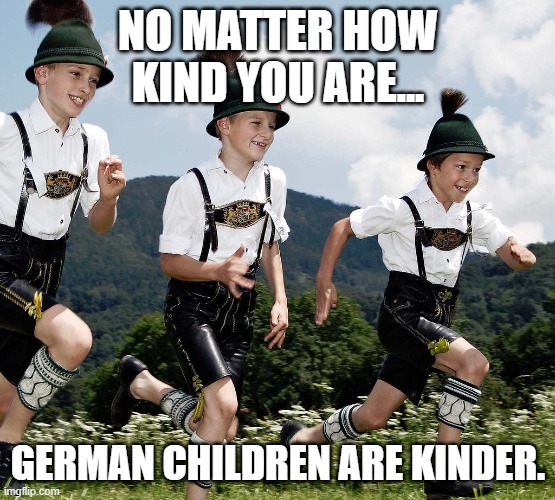In one of the Danish lessons I did recently, I learnt the word skurk, which means villain or baddie, and wondered where it comes from and what other words it’s related to. Let’s find out.
According to Den Danske Ordbog, a skurk [ˈsguɐ̯g] is a person who behaves in an unattractive, dishonest, or malicious manner, or a fictional character in a piece of fiction with the role of the hero’s evil counterpart and enemy or a person or thing that is or is made responsible for trouble or misfortune. In other words, a villain, baddie, wretch, cuplrit, reprobate or rogue [source].
It comes from Low German schurke (villian, scoundrel), from Middle High German schurgen (to shove, push, egg on), possibly from Old High German scuren (to stir, stoke up), from Proto-West-Germanic *skeran (to shear, cut), from Proto-Germanic *skeraną (to shear), from Proto-Indo-European *(s)ker- (to cut) [source].
Related words in Danish include skurkagtig (villainous), skurkeagtig (miscreant) and superskurk (super villain).
Related words in other languages include Schurke (villain, scoundrel) in German, skurk (crook, bad guy, rogue, villain) in Swedish, and skurk (crook) in Norwegian [source].
The English shark, as in someone who exploits others by trickery, lies, extortion, etc, also comes from the same roots, as might shark, as in a scaleless, predatory fish of the superorder Selachimorpha [source].
Another English word that possibly comes from the same roots is shirk, as in to avoid responsibility, duty, obligations, etc [source].
Incidentally, before the word shark arrived in English, such fish were known as dogfish or hayes, which comes from Dutch haai (shark, a ruthless or greedy person) or from West Flemish haaie (shark), from Old Norse hái, an abbreviation of hákarl (shark), from hár (shark) and karl (a man). Related words include Hai (shark) in German, haj (shark) in Swedish and Danish, and акула (akula – shark) in Russian, Belarusian, Bulgarian and Ukrainian [source].






